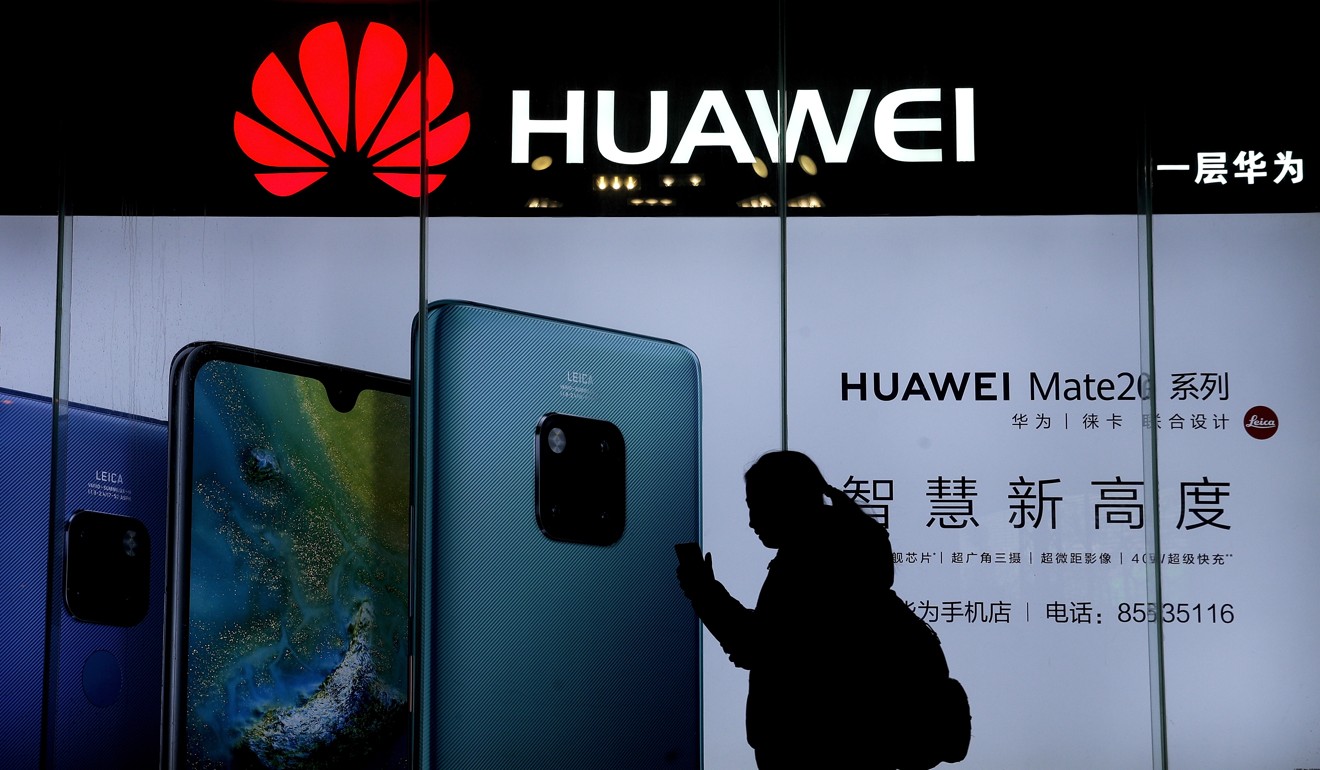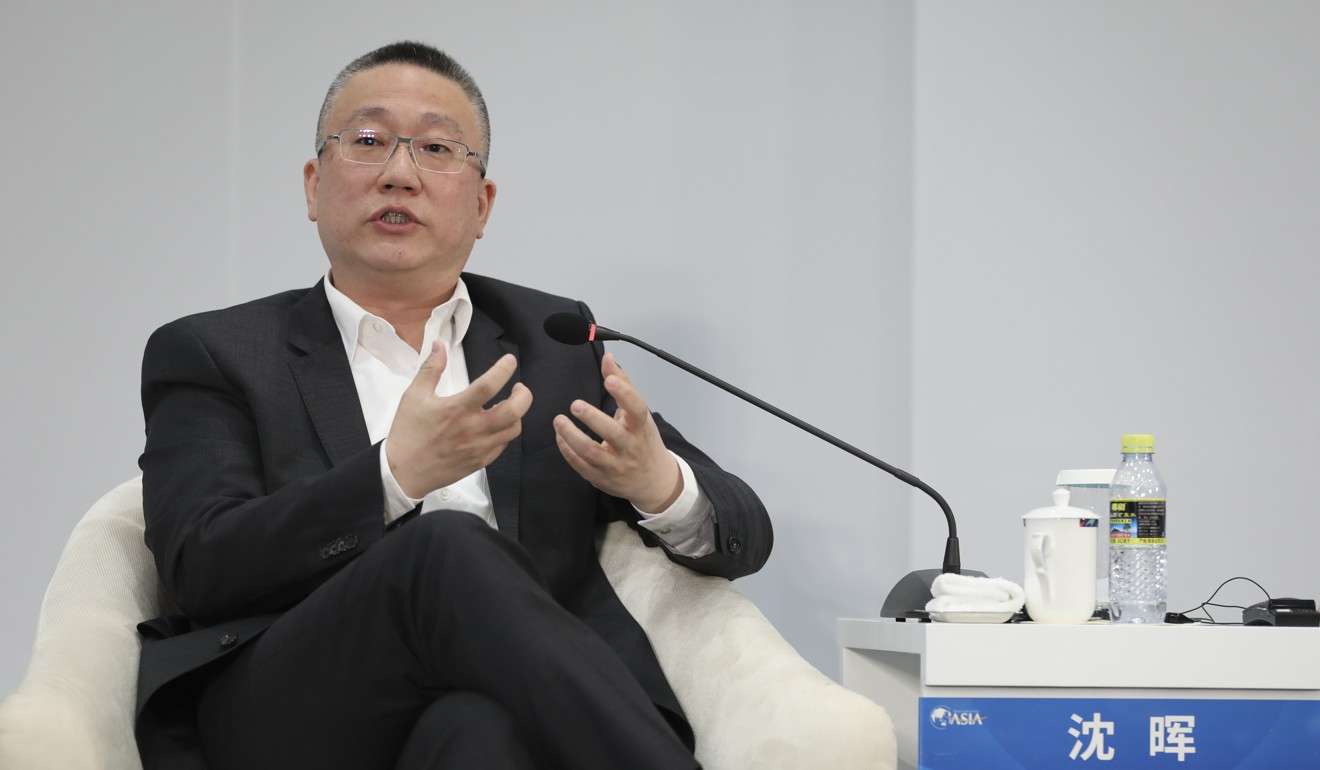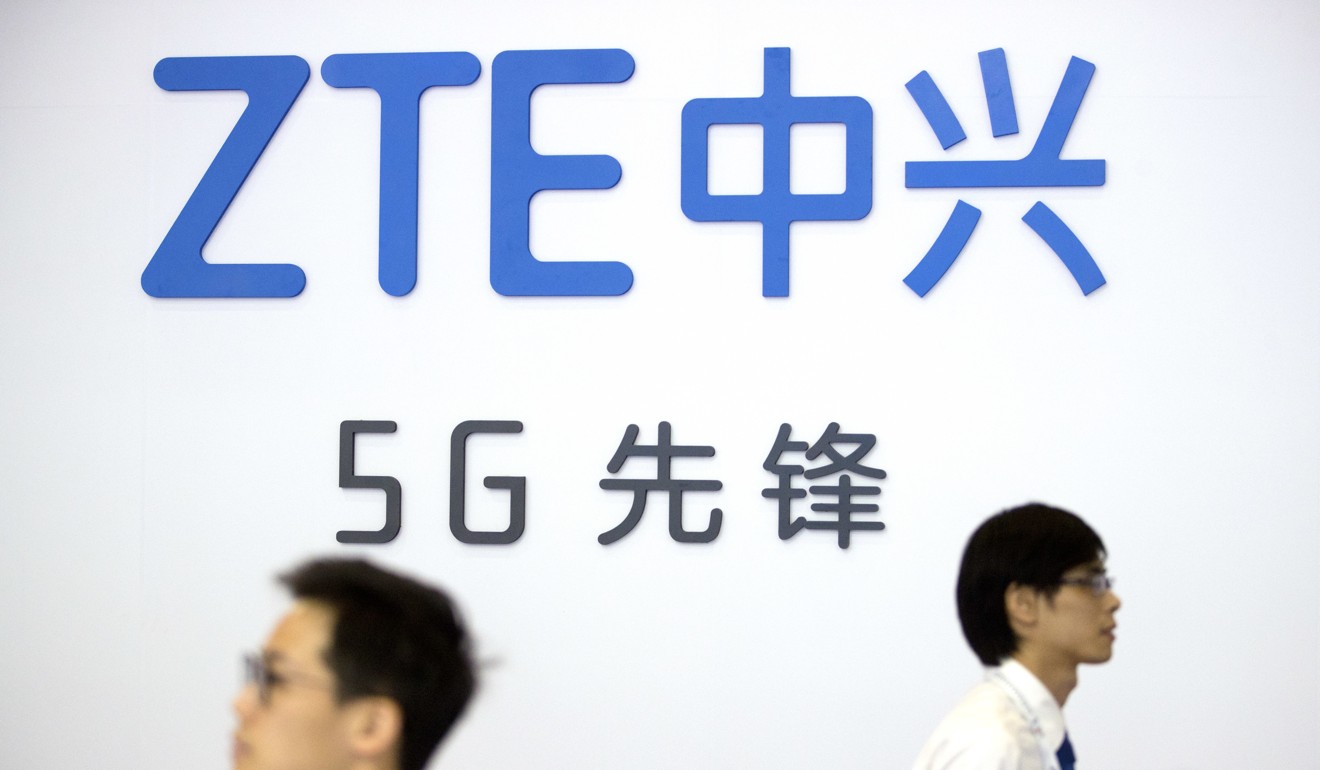
2018 China tech review: look back at a year when gaming was whacked, AI moved ahead and technology took centre stage in trade war
- The big players in e-commerce met new challengers in the form of companies like Pinduoduo
- Apple’s weak iPhone sales also dragged down the performance of its assembler Foxconn
While 2018 may be coming to an end, the ups and downs of China’s tech scene are not even close to taking a breather. This year witnessed the continued ascendance of Chinese smartphone brands, wider deployment of Artificial Intelligence technology, e-commerce moving offline, and the first roll out of China’s home grown electric cars. On the downside, there has been a reversal of fortunes in the once high-flying cryptocurrency world, escalating government controls over games, the humbling of companies in the sharing-based economy, and Chinese technology giants caught in the vortex of a Sino-US trade war.
Here are some of the big China tech stories from the past year.
Smart moves
Chinese smartphone brands gained market share, elevated brand awareness and enhanced their design capacity, to achieve gains both at home and overseas.
After smaller brands were edged out of the mainstream market during the year, the Chinese smartphone market was dominated by the top four local brands: Huawei, Oppo, Vivo and Xiaomi, which now control a combined market share of nearly 80 per cent.
Apple, at fifth spot in China with a market share below 10 per cent, is losing ground because the company has been pricing its new models at the high end to maintain its margins amid slowing handset sales.

Apple’s weak iPhone sales have also dragged down the performance of its assembler Foxconn Technology Group, which is cutting US$2.9 billion in costs following a reduction in component orders by the US tech giant after weaker-than-expected demand for its new, lower-priced iPhone XR model. Meanwhile, the mainland China market share of global smartphone leader Samsung has dipped below 1 per cent. - Li Tao
All in on AI
A year after announcing an aggressive plan to dominate artificial intelligence by 2030, China seems to have softened its stance with the country’s top leaders, including President Xi Jinping, using a high-profile conference in Shanghai in September to call for international cooperation in AI.
However, the softer approach on the world stage has not meant a slowing down when it comes to China’s own tech companies transforming AI technologies into products and services for the domestic market. More than 150 million smart devices from speakers to cars are using Baidu’s conversational AI system DuerOS.
A number of Chinese cities have adopted Alibaba’s AI-powered City Brain to improve traffic flow and incident responses. The fintech arm of JD.com, China’s second largest e-commerce platform, has even applied AI technology to improve productivity in pig farming.
Alibaba is the owner of the South China Morning Post.
Separately, facial recognition has been widely adopted for use in Chinese people’s everyday lives, from catching jaywalkers to ID verification when opening bank accounts. The rapid adoption of the technology and the huge commercialisation potential made China’s SenseTime the world’s most valuable AI start-up in 2018. - Meng Jing and Sarah Dai
Electric dreams
It was full speed ahead this year for China’s mobility market. NIO, WM Motor and Xpeng, a trilogy of electric car start-ups with internet genes, entered a new chapter in their business development by rolling out their first models.
The development of autonomous driving technology took off this year, with record amounts of fundraising and a surge in fleet sizes. Earlier in the year local Chinese authorities were given autonomy to devise their own guidelines for self driving cars to encourage faster development.
Driverless buses powered by Baidu’s Apollo autonomous system began operating in several cities, while Waymo challengers such as Pony.ai, Weride.ai and Roadstar conducted trial robotaxi services.

The same artificial intelligence that helps vehicles detect objects and drive by themselves is also helping doctors in the country screen for cancer. Tencent, Baidu and Yitu Technologies introduced AI-driven tools for the diagnosis of lung cancer and breast cancer. - Sarah Dai
Online meets offline
This year saw the newcomers make a dent in China’s maturing e-commerce landscape.
The big players JD.com and Alibaba Group met new challengers in the form of companies like Pinduoduo as well as NetEase’s Kaola and Yanxuan. Pinduoduo, which listed on Nasdaq in July, jumped to No. 3 in market share after just three years of operation thanks to its social commerce model that lets consumers team up to buy items at cheaper prices. NetEase’s Yanxuan joined manufacturers to create its own brand of Muji-like products, marrying quality, design and an affordable price tag – a business model which saw brands like Xiaomi and Alibaba’s Taobao quickly follow.
The New Retail model which combines online and offline sales was also one of the biggest trends of the year, promoted by Alibaba. Alibaba’s Hema Supermarket, where consumers can buy groceries online or offline, as well as eat in the dining area within the store itself, now has over 90 outlets across the country. JD.com opened its own tech-enabled supermarket chain called 7Fresh, with plans to expand the chain to 1,000 stores across the country within five years.
Hypermart chains like Tencent-backed Yonghui Superstores and Alibaba-backed Sun Art Retail and RT-Mart also experimented with using technology and data to streamline operations and serve consumers more efficiently online and offline.
Meanwhile, the founder of China's largest e-commerce firm Jack Ma also made waves when he announced that he would be stepping down from the executive chairman position in September 2019, handing over the reins to current chief executive Daniel Zhang. Ma will focus on philanthropy and education initiatives after his resignation, he said, although he will remain a lifelong Alibaba partner. - Zen Soo
Casualties of war
China’s two major telecom equipment vendors, Huawei Technologies and ZTE Corp, were casualties of the ongoing trade-war between the world’s two largest economies as Washington sought to push back on Beijing’s plans for global tech leadership through initiatives like Made in China 2025.
In April the US Department of Commerce reactivated sanctions against ZTE, contending that the company had lied when it said it had taken disciplinary measures against employees who flouted Iran sanctions. ZTE agreed to penalties totalling US$1.4 billion, a new board of managers, and a compliance office overseen by US-approved staff. In early July, ZTE resumed business after a ban on it buying US technology was lifted.

Huawei also faced tough prospects in its overseas markets after the US put pressure on its closest allies to block the Chinese company from participating in 5G mobile network projects due to security concerns. National security was also cited as the reason behind the decision by the Australian government in August to bar the Shenzhen-based Huawei and ZTE from supplying 5G equipment to the country’s telecoms carriers.
The trade war was a major challenge for Terry Gou Tai-ming, the billionaire chairman of Apple's main iPhone manufacturer Foxconn. The company, which employs over 1 million people in its Chinese factories, was reportedly considering bringing in personnel from China to help staff a large facility under construction in the US state of Wisconsin, as it may fall short of finding qualified engineers and other workers in one of the tightest labour markets in the US. - Li Tao and Celia Chen
Virtual meltdown
It was only a year ago that bitcoin prices hit an all-time high of nearly US$20,000, but that seems like a lifetime in the fast moving world of cryptocurrencies. During this year the world’s biggest form of digital money, now 10 years old, went into a slide that saw it lose more than 70 per cent of its value. In total nearly US$500 billion has been wiped off the value of the more than 2,000 cryptocurrencies available in the market.
One major culprit behind the valuation meltdown was a clash among supporters of bitcoin cash, the most successful bitcoin offshoot and previously the fourth most valuable cryptocurrency. In November bitcoin cash split into two distinct entities, underpinning fundamental disagreements among developers about how it should operate.
Chinese bitcoin miners were among the first to take a hit from the market meltdown. As bitcoin prices started to fall, it was no longer profitable for many of them to devote their massive computing power to process transactions in return for new units of the digital money as a reward, given their huge electricity bills.
That was not good news for suppliers of mining equipment like Chinese companies Bitmain, Canaan, and Ebang – the world’s top three makers of cryptocurrency mining rigs – which had all had proposed initial public offerings in Hong Kong this year. Canaan let its application lapse and the IPO prospects of its peers also look gloomy amid the prolonged bear market. - Zheping Huang
Games up
The Chinese government’s tighter control of internet content has hit Tencent hard this year.
Games, Tencent’s biggest source of revenue, were in the firing line as the government and state media blamed their overuse as the cause of myopia among young kids. A regulatory reshuffle brought game approvals to a halt starting in March, leaving the company unable to monetise some of its biggest games including PlayerUnknown's Battlegrounds. In the second quarter Tencent reported its first profit drop since 2005 due to lower game revenue.
The content ecosystem on Tencent’s WeChat app, which allows brands, organisations and bloggers to set up public accounts and post articles, audio, pictures and videos for their followers, also came under closer scrutiny this year with tens of thousands of accounts “cleaned up” by WeChat itself or Chinese authorities. Such crackdowns are set to become a “new norm”, China’s internet watchdog said last month.

In an organisational restructuring the company also decided to look beyond its consumer-facing businesses and reach out to enterprises as another future growth engine. Pledging to “embrace the industrial internet”, Tencent is eyeing the huge potential in supporting the digital transformation of China’s economy by providing enterprises with cloud computing, big data and artificial intelligence capabilities. - Iris Deng
Sharing the pain
2018 was a year when bike sharing capital investment and start-ups retreated. Industry pioneers Mobike and Ofo both had a tough year, with the latter suffering the most.
Mobike was acquired by on-demand giant Meituan Dianping for 15.6 billion yuan (US$2.3 billion), but the new owner decided to shrink the fleet size of its bike sharing business because it was costing too much.
While Ofo insisted on independence, its bleeding balance sheet meant it stopped paying bills from several suppliers, resulting in law suits. Meanwhile, Hellobike, a low key latecomer to the industry, flourished and outlived countless competitors by securing finance from deep-pocketed Ant Financial, Alibaba Group’s financial arm. - Yangzhi Yang
The eyes have it
The past year saw a surge in popularity of short video apps in China, catching some established social media and entertainment giants such as Tencent Holdings a little off guard.
TikTok, known as Douyin in mainland China, and Tencent-backed Kuaishou, have captured the hearts and minds of China’s youth who not only film themselves larking around, singing and dancing, but also watch hours of videos to get a glimpse of all walks of life around the country. TikTok, operated by Chinese internet major Beijing ByteDance Technology, also saw the number of new downloads in the US in November rank ahead of Facebook, YouTube, Instagram and Snapchat.

However, the industry was not untouched by Beijing’s content crackdown as short video platforms were criticised by authorities for inappropriate content such as teenage mums, insensitive characterisations of prominent historical figures, and vulgar content. Almost all companies involved in the short video business have announced plans to boost their ranks of content moderators to censor their own videos. Beijing’s efforts to clean up the industry are likely to continue as more people glue their eyes to their smartphones. - Meng Jing

